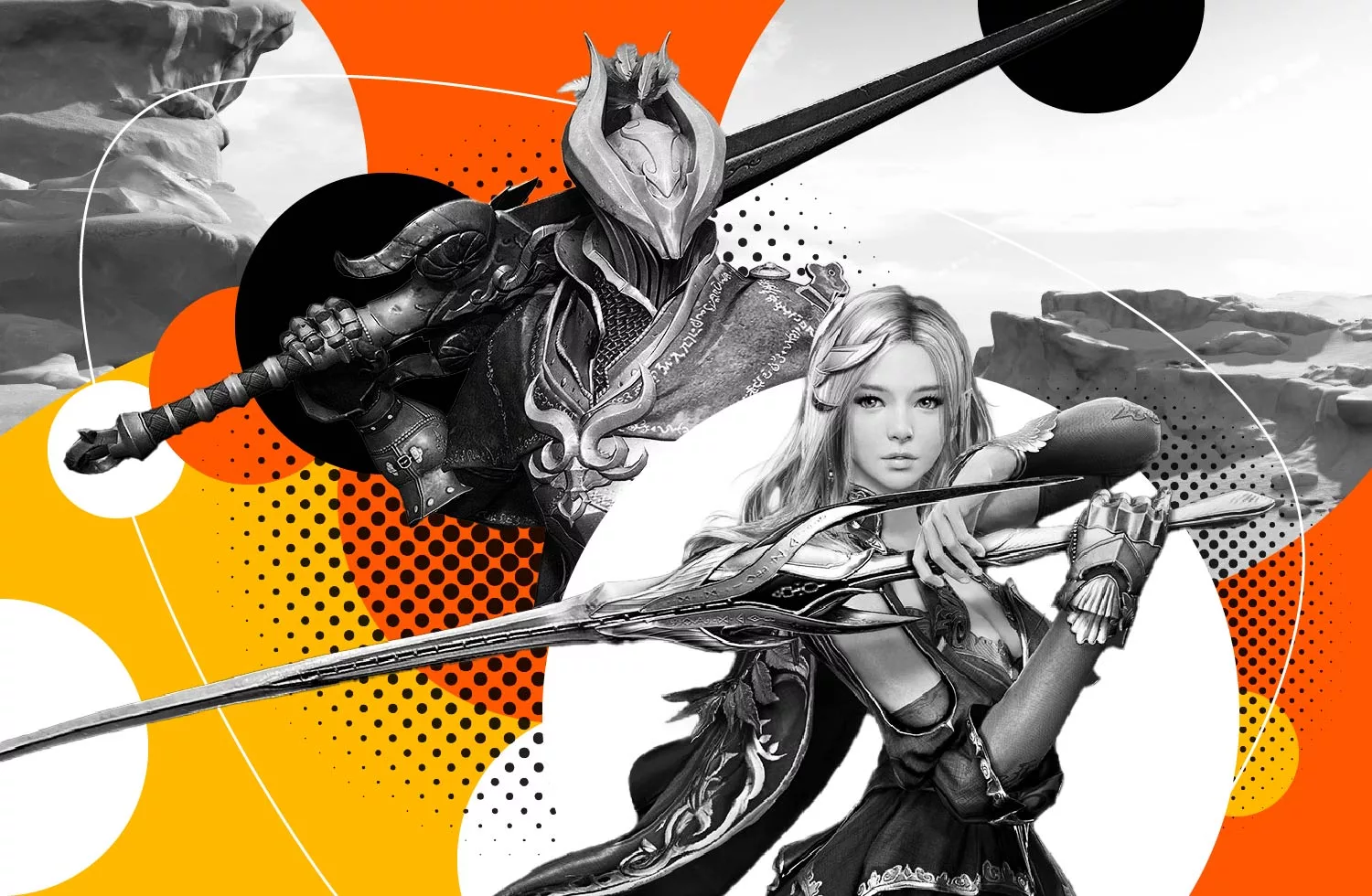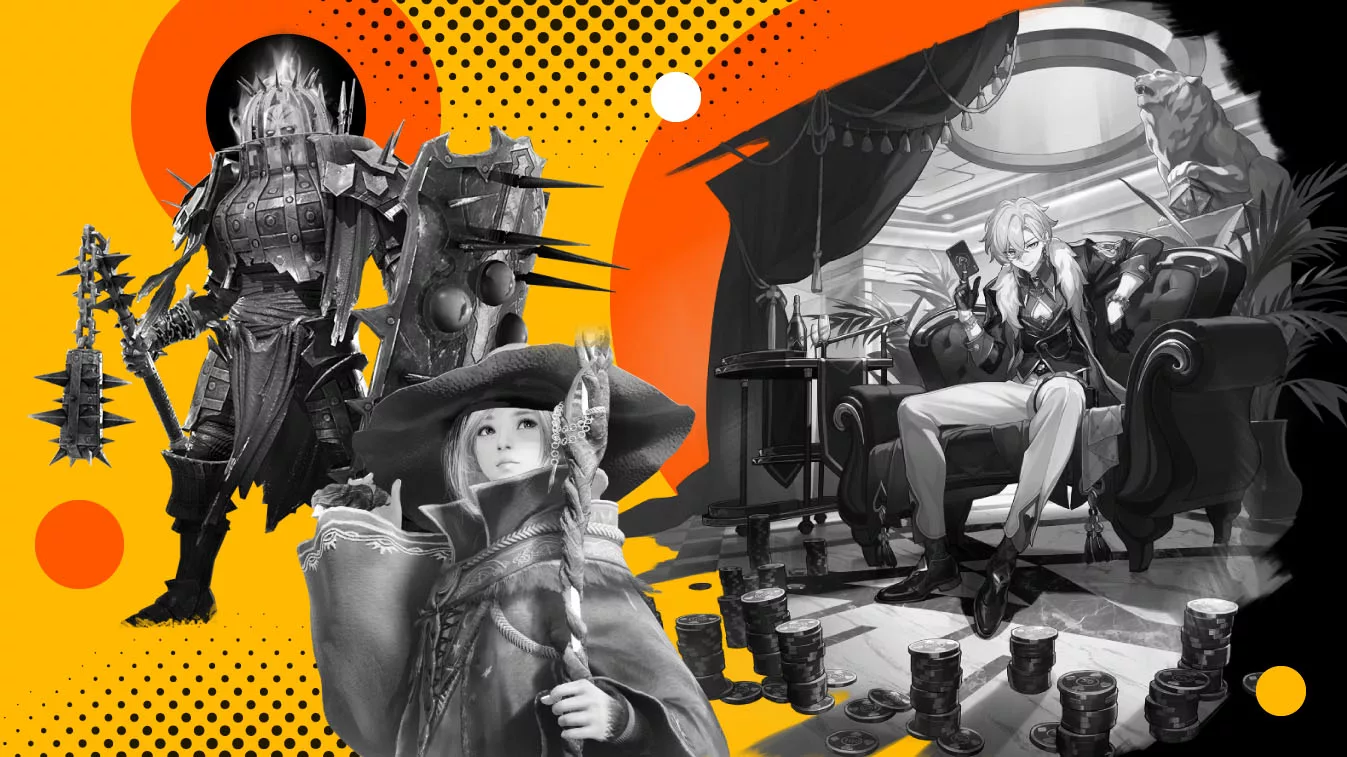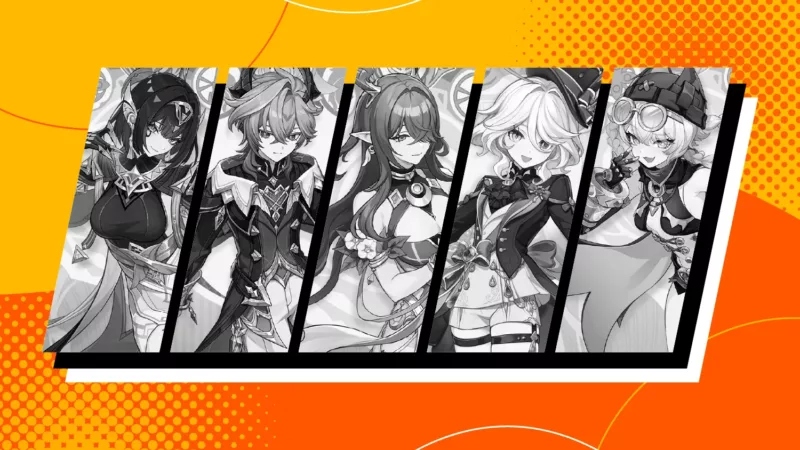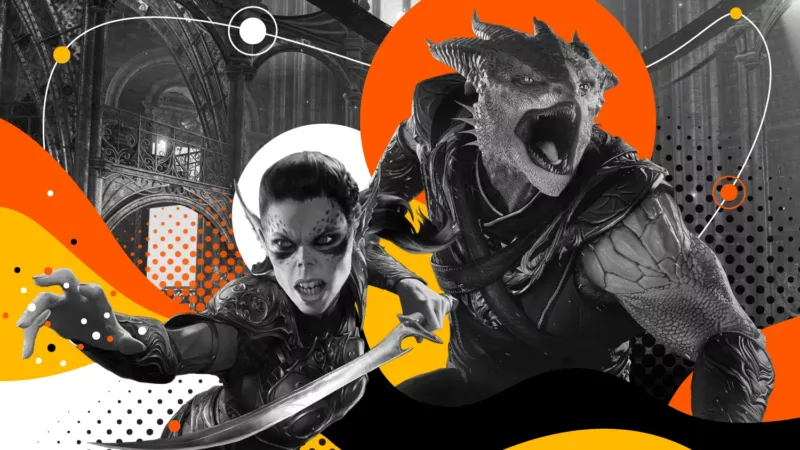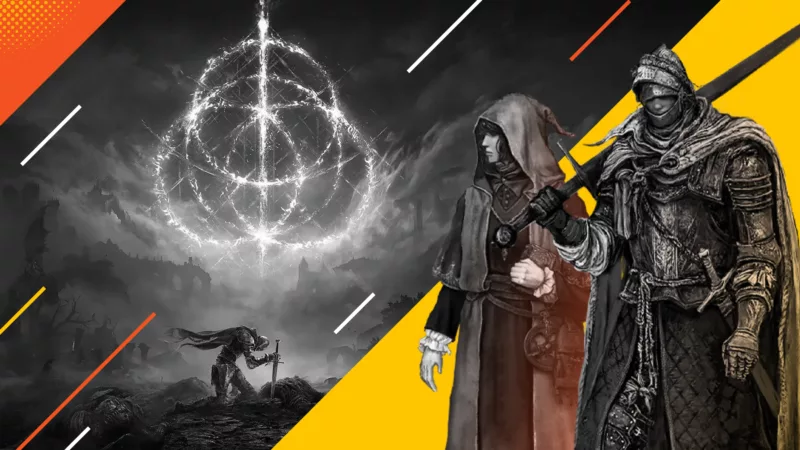
The modern gaming industry would look a lot different without the influence of RPGs. That’s why it’s so surprising to learn these games didn’t go commercial until the 1970s, after the release of Dungeons & Dragons.
Empire of the Petal Throne also put RPGs on the gaming map in the 1970s.
A defining feature of RPGs is their use of game mechanics to attract and keep players, regardless of the game genre. Game mechanics in RPGs, such as critical hits, have helped this genre build a loyal fan base, and have persisted as an element of the genre even as it expanded into mobile RPGs.
But how do you succeed at playing role-playing games? Are there any strategies you can use? The answer is yes, and to find out why, we have to explore the primary success strategy — utilizing RPG classes.
What Are RPG Classes?
Choosing the correct character is one of the most important things you can do in role-playing games. When you know the strengths and weaknesses of your character, you are better able to see how to act in certain situations.

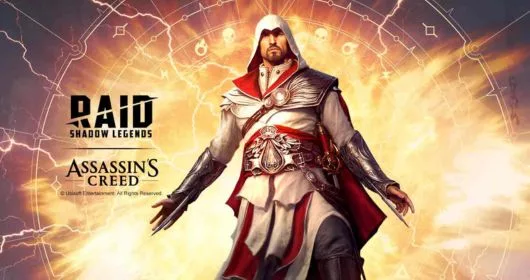
That knowledge gives you a competitive advantage and increases your chances of success in the game. Think of video game builds like Diablo 4 classes as an inspiration.
Game developers introduced RPG classes to help players achieve this knowledge. The classes differentiate characters in combat by presenting a list of skills they have access to. In other words, a character’s ability depends on their class.
RPG classes aren’t just a fun gimmick. They add genuine content. When there are more classes, you can play the game in new and exciting ways every time. By far, MMORPG games have embraced the use of classes the most. For instance, the MMORPG game Dark Age of Camelot boasts around 45 different classes.
Likewise, we’re seeing other gaming genres start using class systems more, including first-person shooters. In particular, Hero Shooter, a sub-genre of first-person shooters, has begun to capitalize on classes. Games like Marvel Rivals implement this mechanic as well as a competitive ranked system.
As a player, you want to choose a class that reflects your personality and playing style. You should also reference your playing history and see where you had the most success in the past. Obviously, if you’re opting for a superhero, you must be keen on having a perfect name. For that, we must insist that you generate a superhero nickname with our free tool.
For instance, did you see the most success when you played with more offensive skills than defensive skills, or was it the other way around? Are you a better player when you’re at the front of the battlefield or keeping to the back?
The Main RPG Class List
- The Fighter Class
- The Rogue Class
- The Magician Class
- The Rangers Class
- The Clerics Class
- Rare Character Class
What RPG Class Are You In?
After learning how the class you choose in RPGs should represent your style, a very common follow-up question is naturally “What RPG class am I?”. It may seem like a daunting question, but finding out the answer is simple.
All you have to do is think about what you enjoy about the gaming experience and go from there. Do you prefer to play games that focus more on damage rather than defense? Or, do you enjoy games with a more cautious style of gameplay? Do you like bladed weapons or archery?
These are all indicators of what class suits your playing and personality style.
Looking at the class list, we know there are archetypes in RPGs. You may even recognize them from characters you have related to in books or movies. Moving forward, we are going to explore these tropes in detail, so keep on reading to see if you are right about your class!
The Different RPG Classes
The Fighter Class
The Fighter is one of the most basic RPG classes. But, this character archetype is still one of the most popular. The Fighter excels at fighting their rivals in close-range combat, and they tend to have high HP scores.
Fighters will also have excellent defense and offensive skills. If you like hack and slash gameplay, you should try the Fighter class. The same goes if you enjoy having the best armor and weaponry around.
There are also several variations of the characters associated with the Fighter class. They include:
- The Knight: The Knight wears more advanced armor and weaponry than the basic Fighter. They often have supportive abilities that allow them to keep their allies safe. For instance, a Knight may use a shield to protect people from enemy attacks. The Knight is also known as the Cavalier. It is common to see this character in medieval games.
- The Barbarian: Remember how earlier we asked what RPG class are you and if you prefer games that focus more on damage? Well, now is your time to shine. The Barbarian, also known as the Savage or Viking, often flies into devastating fits of rage. They are not civilized and often wear little clothes. Barbarians focus more on causing damage than defense, which is why they tend to have greater physical capabilities than basic Fighters.
- The Warrior: Also known as the Brute, the Warrior prefers to use large weapons to smash through and defeat their enemies. They do this rather than emphasize defense like the Knight. Warriors tend to be methodical and slow, but they deliver powerful attacks. They can range from being strong and skilled to unskilled but incredibly strong.
- The Swashbuckler: The Swashbuckler also joins the RPG class list. This character represents a Fighter who favors agility skills. They also prefer technical skill to brunt force. This character leans toward light armor or none at all. It’s worth mentioning you can see the Swashbuckler in various forms of entertainment. One of the earliest examples is Johnston McCulley’s character Zorro, created in 1919. Zorro is an agile and technical fighter who uses little weaponry to defeat his enemies.
The Rogue Class
Another one of the main RPG classes is the Rogue class. Rogues are masters of stealth, and they prefer to attack when their enemies are least aware. Rogues excel in battle, though they tend to be fragile. They instead depend on their speed to get out of tight situations.
Rogues are also useful outside of battle. They tend to have a range of utility abilities, including lock picking. Like the Fighter class, there are several variations of the characters in the Rogue class. They include:
- The Ninja: The Ninja is one of the most common characters in the Rogue class. Ninjas have dozens of useful skills, including invisibility. They are also great at throwing items, such as daggers.
- The Assassin: Are you someone who prefers taking a more subtle approach to your gameplay? Are you more Bruce Lee than Arnold Schwarzenegger? If so, you will like this character archetype. Assassins tend to have more skills in stealth and sneaking around. When they carry weapons, they are often small and quick to draw. Assassins are not known for being the most brutal fighters, but they are the best thieves. They also know how to find places to hide. No one is safe when the Assassin is around.
- The Thief: The Thief excels in stealing tangible and intangible items from their enemies. They are quick and agile, allowing them to get away with stealing rare items. You can also steal experience points when playing as the Thief in some game systems.
- The Gambler: If you see a character in a game attacking their opponents with playing cards instead of knives or swords, that is the Gambler. The Gambler is a Rogue with magical powers, but they depend on chance. For instance, you may see The Gambler drawing a card or rolling dice to achieve a magical outcome. Often, these outcomes depend on The Gambler’s luck.
The Magician Class
The Magician is another popular option among the various RPG classes. Magicians tend to use less weaponry and depend more on the elements (earth, wind, fire, water). They also use different spells to beat their enemies.
We should note a Magician is a glass cannon. That refers to a character with offensive power but weak defensive skills. In other words, a Magician can attack from a long-range, but their enemies can take them down at a close range. The variations of this class include:
- The Illusionist: Otherwise known as Mesmer, the Illusionist is a Magician who can cast illusions. Illusionists can also clone themselves. They can trick, distract, and misdirect their enemies, and you will often see an Illusionist also having some form of Psychic power.
- The Inherent Gift Magician: Do you have a particular skill set that you were born with? Well, that is like the Inherent Gift Magician. This magic user was born with their powers, and they focus on them and them alone. While this is a blessing, these characters have limited spell pools. That can affect them when defending themselves and their allies from enemy attacks.
- The Generalist: This is a Magician that studies various types of magic. They don’t specialize in anything. However, when studying magic, it is often rare and powerful. These Magicians tend to be the most open-minded.
- The Theurgist: How many movies have you seen when someone makes a pact with a higher spirit to get powers? Well, The Theurgist is a Magician in RPGs who does something similar. This character agrees on a deal with a higher spirit who rewards them with magical powers.
The Ranger Class
Another archetype on the RPG class list is the Ranger. Rangers are woodsmen who favor using their archery and melee combat skills over weapons and excessive force. For those who don’t know, melee combat is hand-to-hand combat fought at close ranges.
Rangers use their surroundings to their advantage, and they sometimes have skills in natural magic. Rangers are also often very good at fighting one specific enemy, such as monsters, which is why they focus on melee combat. Variations in this class include:
- The Bow and Blade Ranger: Remember how earlier we asked what RPG class are you, and we asked whether you prefer bladed weapons or archery? Well, if you like both, the Bow and Blade Ranger is a great character for you. This Ranger favors both archery and bladed weapons as well. That flexibility allows them to defend themselves against enemies while still executing long-distance kills.
- The Trapper: Otherwise known as the Sapper, The Trapper is a Ranger that excels at laying traps down for their enemies. After laying the traps, these Rangers often ambush them. Trappers excel at making their enemies vulnerable.
- The Sniper: Unlike the Bow and Blade Ranger, The Sniper can’t use bladed weapons, only archery. For these reasons, The Sniper tends to stay at the back of the battle because they are weak in close combat. That said, the Sniper often has status-inflicting arrows to use to slow down their enemies.
The Clerics Class
The Clerics class differs from other RPG classes, including Magicians. That is because Clerics get their powers from a God or faith. Sometimes it is a variation of the two. This character’s magical abilities tend to focus on healing.
This class has the least amount of variations, but they include:
- The Battle Priest: A battle priest has healing powers, but they can also cause damage. They often appear as tough and confident characters who carry blessed weapons. The Battle Priest is also referred to as the Chaplain.
- The Healer: Otherwise known as the White Mage, the Healer is a dedicated Cleric whose magic can heal its allies and harm its enemies. The Healer is a great character for you if you like being in charge of the survival of your team.
The Rare Character Class
There are also RPG classes that don’t appear in games all the time. It depends on the developer’s world-building and the story they are trying to tell.
Variations of the rare character class include:
- The Engineer: This is a character that uses technology to achieve desired outcomes rather than magic like a Wizard. They tend to use machines on the battlefield and use bombs or guns as weaponry.
- The Gun Mage: This character is a Magician that uses guns to shoot spells at their enemies. While the Gun Mage isn’t the most versatile character, they tend to have greater than normal mobility and attack speed.
- The Beastmaster: Otherwise known as the Pet Master or the Puppet Master, this character can control a “pet” to help them fight their enemies. The pet can be anything from a dog to a unicorn.
- The Beast: Not to be confused with the Beastmaster, the Beast is a non-human creature that uses its body as a weapon. The Beast can also be a human that turns into a non-human character. Beasts lack versatility, but they have high movement speed and excellent terrain-based abilities.
- The Scholar: Scholars are characters that have vast amounts of knowledge. They can study their enemies by reading their stats, and they use this to find their weaknesses. Scholars sometimes use books as their weapon of choice.
How to Succeed in RPGs
Role-playing games would be nowhere without the influence of Dungeons and Dragons in the 1970s. However, since then, the genre has gone on a journey of its own. Today, role-playing games can provide entertainment for hours.
They also challenge gamers and keep them on their toes as RPGs increase difficulty levels. Like other genres, there are different ways you can try to see success in role-playing games.
RPG Classes
As we have covered, one of the best ways to succeed in this type of game is to think about the different RPG classes. You want to select the class you think your preferred playing style will benefit the most from.
Have an Open Mind
Another suggestion is to go into the game with an open mind. You can get carried away with thinking you need a pre-set strategy for RPGs, but things change all the time. You have to be flexible and ready to throw out your favored playing or fighting style if need be.


Team Work Makes the Dream Work
Working with other players is another way to see success in role-playing games. Some games have impossible missions to complete without talking to other players. Be open to this experience. Team-work will help you as a player in the long term.
The more you bounce ideas off other people, the more planning and strategizing becomes second nature.
Choose Your RPG Class
So, after reading this article, we have two questions for you. First, do you now see how the use of classes has allowed RPGs to build a dedicated fan base over the years? And two, are you still wondering, “What RPG class am I?”
If you answered yes to the first question, that’s great! But, if you answered yes to the second question, go out and play an RPG to get the full experience. You’ll never understand RPG classes without playing one at least once, but try and remember what we said.
Create a list of all the things you enjoy about gaming and use it to find the accommodating RPG classes.
Happy role-playing!


